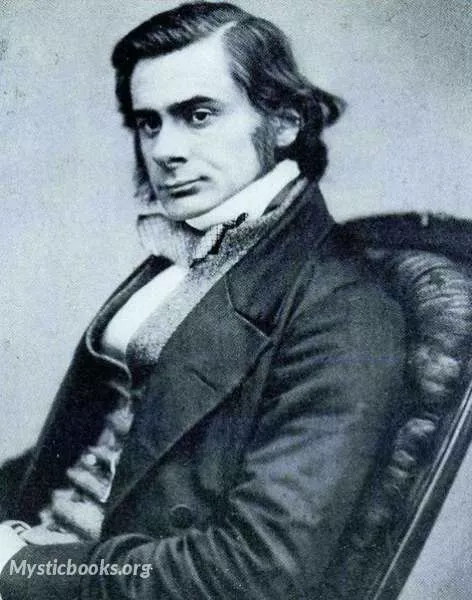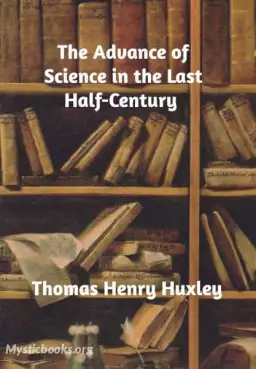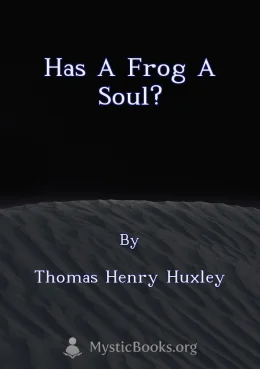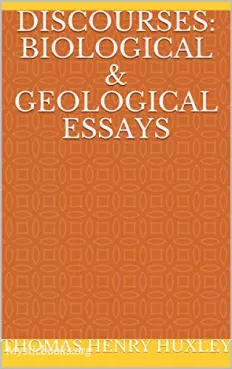
Timeline
Title
Country/Nationality
Thomas Henry Huxley
Thomas Henry Huxley was an English biologist and anthropologist specialising in comparative anatomy. He is known as "Darwin's Bulldog" for his advocacy of Charles Darwin's theory of evolution.
The stories regarding Huxley's famous debate in 1860 with Samuel Wilberforce were a key moment in the wider acceptance of evolution and in his own career, although historians think that the surviving story of the debate is a later fabrication. Huxley had been planning to leave Oxford on the previous day, but, after an encounter with Robert Chambers, the author of Vestiges, he changed his mind and decided to join the debate. Wilberforce was coached by Richard Owen, against whom Huxley also debated about whether humans were closely related to apes.
Huxley was slow to accept some of Darwin's ideas, such as gradualism, and was undecided about natural selection, but despite this he was wholehearted in his public support of Darwin. Instrumental in developing scientific education in Britain, he fought against the more extreme versions of religious tradition.
Originally coining the term in 1869, Huxley elaborated on "agnosticism" in 1889 to frame the nature of claims in terms of what is knowable and what is not. Huxley states:
Agnosticism, in fact, is not a creed, but a method, the essence of which lies in the rigorous application of a single principle... the fundamental axiom of modern science... In matters of the intellect, follow your reason as far as it will take you, without regard to any other consideration... In matters of the intellect, do not pretend that conclusions are certain which are not demonstrated or demonstrable.
Use of that term has continued to the present day (see Thomas Henry Huxley and agnosticism). Much of Huxley's agnosticism is influenced by Kantian views on human perception and the ability to rely on rational evidence rather than belief systems.
Huxley had little formal schooling and was virtually self-taught. He became perhaps the finest comparative anatomist of the later 19th century. He worked on invertebrates, clarifying relationships between groups previously little understood. Later, he worked on vertebrates, especially on the relationship between apes and humans. After comparing Archaeopteryx with Compsognathus, he concluded that birds evolved from small carnivorous dinosaurs, a theory widely accepted today.
The tendency has been for this fine anatomical work to be overshadowed by his energetic and controversial activity in favour of evolution, and by his extensive public work on scientific education, both of which had significant effects on society in Britain and elsewhere. Huxley's 1893 Romanes Lecture, “Evolution and Ethics” is exceedingly influential in China; the Chinese translation of Huxley's lecture even transformed the Chinese translation of Darwin's Origin of Species.
Books by Thomas Henry Huxley

The Advance of Science in the Last Half-Century
Thomas H. Huxley, an English biologist and essayist, was an advocate of the theory of evolution and a self-proclaimed agnostic. A talented writer, his essays helped to popularize science in the 19th century, and he is credited with the quote, “Try to...

Has a Frog a Soul?
Thomas Huxley, known as “Darwin’s Bulldog” for his championing and development of Darwinism, was perhaps the most important Victorian biologist after Darwin himself. This speech to the Metaphysical Society in 1870 is one of Huxley’s best known texts...

Discourses: Biological and Geological
Embark on a captivating scientific odyssey with Thomas Henry Huxley's "Discourses: Biological and Geological," a collection of thought-provoking essays that delve into the intricate workings of the natural world. Prepare to have your mind expanded as...